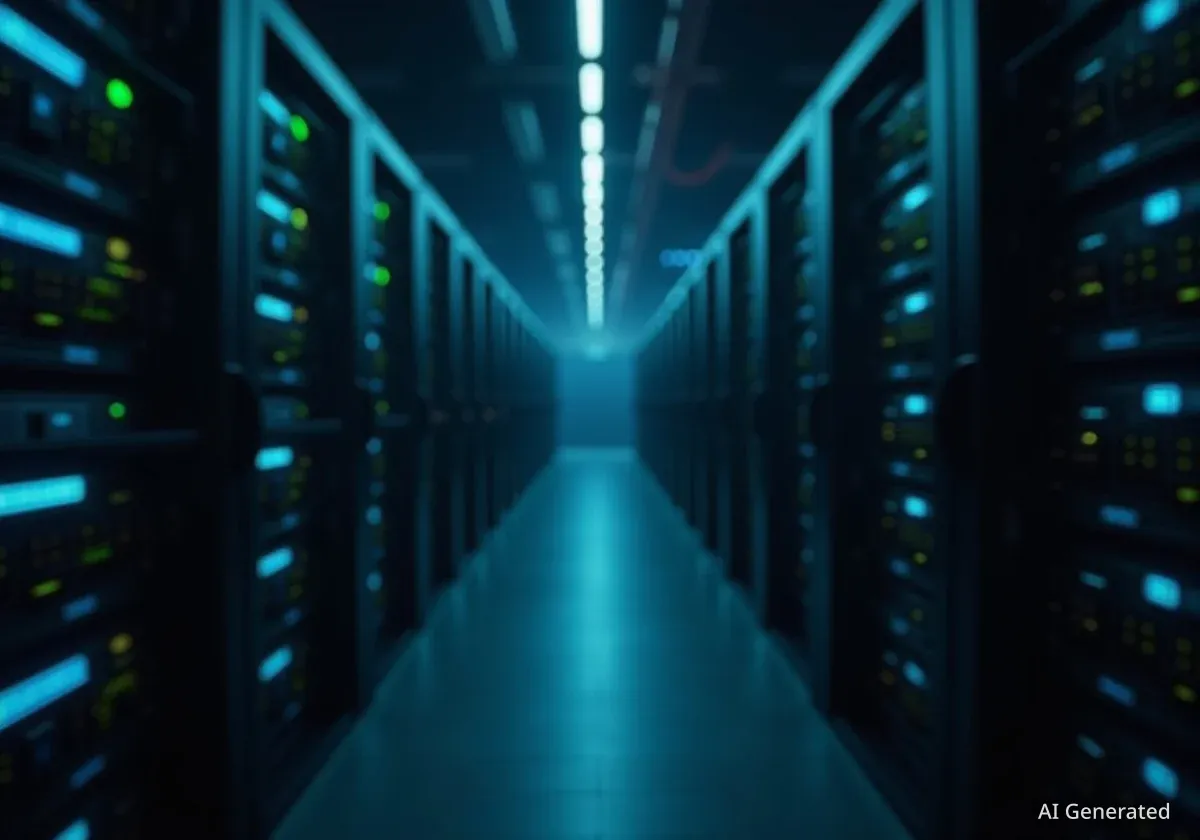Alexis Ohanian, a co-founder of Reddit, has stated that a significant portion of the internet no longer feels human. During a recent podcast appearance, he described the modern web as being largely driven by bots and artificial intelligence, referencing a growing concern known as the "dead internet theory."
Ohanian argues that the digital landscape, once a hub for human connection, is now saturated with automated content. He predicts this trend will lead to the emergence of new social media platforms that prioritize and verify human interaction.
Key Takeaways
- Reddit co-founder Alexis Ohanian claims much of the internet is "botted" or "quasi-AI."
- He referenced the "dead internet theory," which suggests bot activity now surpasses human activity online.
- Ohanian believes the future of social media lies in "verifiably human" platforms, as users seek authentic connections.
- The conversation has shifted from public forums to private group chats on apps like Signal and Discord.
- Other tech leaders, including OpenAI CEO Sam Altman, have expressed similar concerns about AI-driven accounts online.
The State of the Modern Internet
During an episode of the TBPN podcast, Alexis Ohanian expressed his frustration with the current state of online interaction. He suggested that the internet has fundamentally changed from its original purpose of connecting people.
"So much of the internet is now dead," Ohanian stated on the podcast. He elaborated that a vast amount of online content is either fully automated by bots or is what he termed "quasi-AI." He specifically pointed to the proliferation of low-quality, generic content on professional networking sites, calling it "LinkedIn slop."
What is the 'Dead Internet Theory'?
The dead internet theory is a concept that has gained traction in recent years. It posits that organic, human-created content on the internet is being rapidly replaced by algorithmically generated and automated content. According to this theory, bots and AI now account for the majority of online activity, making authentic human interaction increasingly rare on the open web.
Ohanian's comments highlight a growing sentiment that the internet's signal-to-noise ratio has degraded significantly. The ease of creating and distributing AI-generated content has led to a flood of information that lacks human perspective and authenticity.
Concerns Echoed by Other Tech Leaders
Ohanian is not the only prominent figure in the tech industry to voice concerns about the rise of automated content. His observations align with recent comments from OpenAI CEO Sam Altman, a key figure in the development of large language models (LLMs).
In September, Altman posted on the social media platform X (formerly Twitter), noting a shift in his perspective. He wrote that he "never took the dead internet theory that seriously," but has since changed his view after observing "a lot of LLM-run twitter accounts."
This acknowledgment from the head of a leading AI company underscores the scale of the issue. The very tools being developed to advance technology are also being used to populate the internet with non-human content, a trend that is now difficult for even industry insiders to ignore.
This shared concern from founders of major platforms like Reddit and leaders in AI development signals a critical turning point in the conversation about digital authenticity.
The Migration to Private Digital Spaces
As public-facing platforms become saturated with AI-generated content, users are increasingly moving their conversations to more private, controlled environments. Ohanian noted that genuine interaction is now primarily happening in closed forums.
"It's all going down in the group chats now," he said. This migration is not limited to standard text messages. Users are turning to encrypted apps like Signal and community-based platforms like Discord to find human-to-human connection away from the noise of public feeds.
The Boom in Group Chats
In recent years, the use of private messaging apps and group chats has surged. A 2024 report from Business Insider found that many users who were once active on public social media now prefer to share their thoughts and information within trusted, smaller groups. This behavior reflects a desire for a higher quality of interaction and a retreat from the performative nature of public platforms.
However, Ohanian cautioned that even these private spaces are not entirely immune to the influence of AI. Some users have started employing artificial intelligence to help generate or edit their messages within group chats, introducing another layer of automation into what was once a purely human domain.
The Future of Social Media
Looking ahead, Ohanian predicts a significant shift in the social media landscape, driven by the demand for authenticity. He believes the current environment necessitates what he calls "proof of life" to capture and hold user attention.
"I think we'll see a next generation of social media emerge that's verifiably human," Ohanian predicted. This suggests a future where platforms may need to implement systems to confirm that their users are real people, not bots or AI agents.
He views the current reliance on group chats as a temporary solution, not the final destination for online communication. While they serve a crucial need for authentic connection, he believes there is room for innovation.
"There's got to be some next iteration of that, because that's where all of us are getting our really best info now," he concluded. The challenge for the next wave of tech entrepreneurs will be to scale the intimacy and trust of a private group chat into a new form of social network, one that successfully filters out the noise of the increasingly automated internet.





